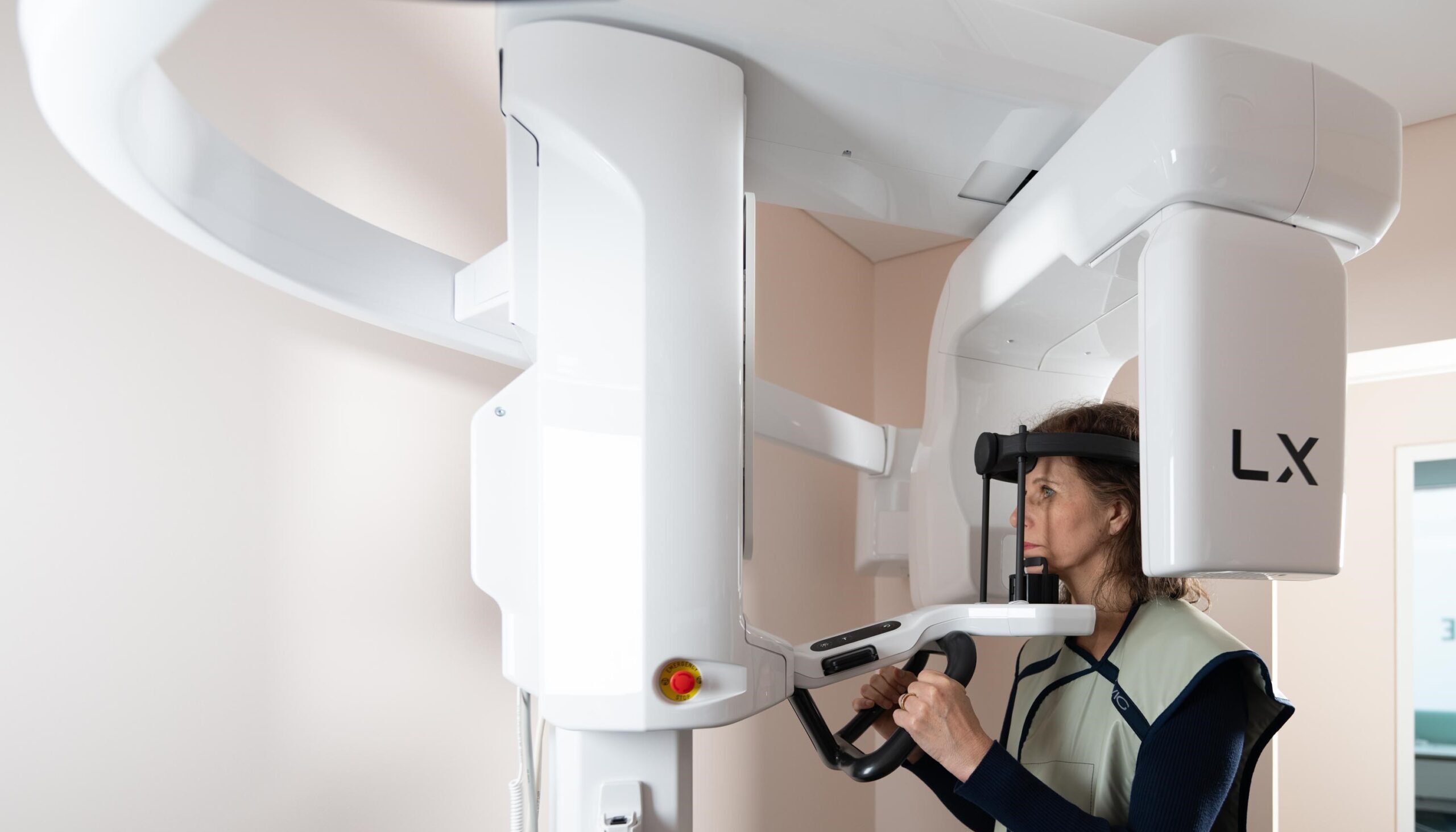Jaw bone inflam-mation / Oral surgery
Inflammation of the jawbone, also known as osteomyelitis, can have serious consequences and requires prompt treatment.
Symptoms
The following signs indicate jawbone inflammation. If you notice these, you should see a specialist:
- Jaw pain: A constant, often pulsating feeling of pain that does not go away and becomes more severe when chewing.
- Swelling and redness: A noticeable swelling or redness on the face, especially if accompanied by a feeling of warmth and tenderness.
- Restricted mouth opening: Difficulty or pain opening your mouth is a severe sign.
- Fistula: Pus discharge from the jaw area is a clear sign of infection. Sometimes, this is accompanied by an unpleasant taste in the mouth.
- Diffuse dental problems / impacted wisdom teeth: Loose teeth or pain when biting, especially when there is no other explanation, such as tooth decay.
Imaging diagnostic technology
In our policlinic we use the most modern imaging techniques to precisely understand the cause of your symptoms and initiate the most effective treatment:
- Detailed images: We can see exactly where the inflammation is and how far it has spread using X-ray images such as DVT and MRI.
- Comprehensive assessment: These pictures show us where the problem is and how serious it is. This helps us plan the best treatment for you.
- Targeted treatment planning: The information from the imaging allows us to determine whether drug therapy is sufficient or surgical intervention is necessary.
- Monitoring the healing process: Even after the treatment, these images help us to monitor the healing process closely and ensure that everything is going according to plan.

Treatment options
Treatment for TMJ can vary depending on the cause and severity of the inflammation. Here are some of the most common treatment methods:
- Drug therapy: Nonsteroidal anti-inflammatory drugs (NSAIDs) reduce pain and inflammation.
- Injection Therapies: Injections of corticosteroid or autologous conditioned plasma (also known as PRP) directly into the jaw joint can reduce inflammation and relieve pain.
- Surgical Interventions: When conservative methods are not enough, we perform minimally invasive or open surgical procedures to repair the joint and ensure its long-term health. All surgical procedures take place in one of our partner clinics in Zurich.
Imaging diagnostic technology
In our polyclinic, we use the most modern imaging techniques to precisely understand the cause of your symptoms and initiate the most effective treatment:
- Detailed images: We can see exactly where the inflammation is and how far it has spread using X-ray images such as DVT and MRI.
- Comprehensive Assessment: These images show us where the problem is and how serious it is. This helps us plan the best treatment for you.
- Targeted treatment planning: The information from imaging allows us to determine whether drug therapy is sufficient or surgical intervention is necessary.
- Monitoring the healing process: Even after treatment, these images help us monitor the healing process closely and ensure that everything goes according to plan.
Treatment options
The focus is on treatment by removing the source of inflammation (causal therapy approach).
- Drug therapy: In the case of bacterial infections, administering antibiotics is often the first step. These can be taken orally or, in more severe cases, administered intravenously. Administering painkillers may be part of treatment to relieve patients and aid recovery.
- Surgical interventions:
-Removal of the focus of inflammation and the dead bone tissue: To stop the spread of the infection, the focus (e.g., impacted wisdom tooth ) and the dead tissue are removed, and the affected area is surgically cleaned.
-Drainage: In some cases, the placement of a drain may be necessary to drain pus or other infected fluids.All surgical procedures take place in one of our partner clinics in Zurich. - Hyperbaric oxygen therapy: Hyperbaric oxygen treatment, in which the patient breathes pure oxygen under increased pressure, can improve oxygen supply to tissues and promote healing.
- Healthy lifestyle habits:
-Avoiding smoking: Smoking can impair healing. Quitting smoking can, therefore, be recommended.
-General health promotion: A balanced diet and good oral hygiene strengthen the immune system and support recovery. - Long-term monitoring: Regular follow-up visits are crucial to ensure that the infection has entirely resolved and that no relapses occur.
It is important to emphasize that the exact treatment may vary depending on the cause and severity of the jawbone infection. Only a qualified doctor can make an accurate diagnosis and recommend appropriate treatment.



